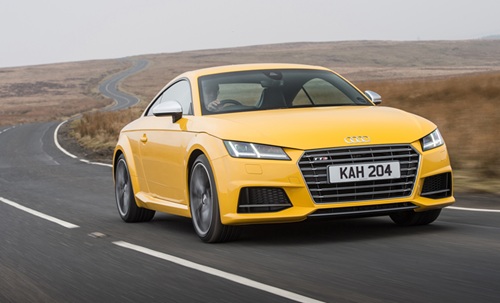Restoring classic cars can be a rewarding hobby or a potential money pit. But with the right planning and tools, classic car restoration projects can turn a dusty relic into a stunning head-turner.
Why Restore a Classic Car?
Classic cars aren’t just vehicles; they’re pieces of automotive history. Whether you're restoring a classic car for personal enjoyment or as part of a larger restoration project, bringing a vintage vehicle back to life can be incredibly fulfilling. Plus, well-restored classic cars often increase in value, making them worthwhile investments.
Thousands of people in the UK own a classic car. The wealthy collectors among us could easily have spent many thousands and even millions on their private garages full of highly desirable and rare machinery.

But thousands more dip into the car collecting world by buying a cheaper, more modern and more accessible car that’s still a potential classic. And as every year goes by, the list of desirable motors that will never be available as a new model again, gets longer.
Any car that’s over 20 years can be counted as a true ‘classic’. Of course, not every 20 year old car will look or drive anything remotely like a classic vehicle and it’s usually the sportier or more unusual model variants of well-known cars that attract the collectors.
Yes, a pristine Mini that has had one careful owner since new will certainly come under the category ‘classic’ but there’s not many of those left. But any slightly rarer version of a car range, or a model that has a bit of history in terms of racing or rallying, or a long model run (as in the VW Beetle), could well be worth finding and restoring for generations to enjoy. Ultimately, that’s what museums do.
Professional restorations can run into thousands of pounds, but a lot of repair and refurbishment can be done by a private individual with the right tools. And it can be a satisfying and rewarding pastime too.
So, what can you do, on a budget, to turn an interesting find with potential into a concourse-worthy show-winner? Here are some MotorCheck tips for restoring a classic:
1. Researching Classic Cars for Restoration
Spend plenty of time researching the model of your dreams. It’s part of the fun of it. Read about the make and model and find out how easy it will be to get parts and advice. There are clubs and associations set up for particular car makes and models – it might be useful if there was one for yours.
2. Plan of action
Create a sensible plan of work and think about how long the work will take. Owning a classic usually means there’s always something to do – it’s part of the hobby – but an initial idea will save frustrations and delays later.
3. Budgeting for a Classic Car Restoration Project

Restoring a car can be a big commitment on your finances, especially as there will inevitably be unforeseen costs to come. If this is your first classic project, choose a car that doesn’t require pots of gold to get it moving. Opt for something that is workable and will look good quite quickly with some light mechanicals and a bit of polish and elbow grease.
4. Essential Tools for Restoring Classic Cars
Make sure you have right equipment for your project. A decent mechanic’s toolbox is a good start, but individual models might require specific tools which could be expensive. A set of quality tools will make the job easier and more pleasurable. Ensure you have the right safety equipment too, such as gloves and goggles.
5. Rust in peace
One of the worst enemies of a car restorer is rust. It’s unsightly, damaging and can be dangerous. Ensure your purchase isn’t riddled with the stuff. Having a little rust to deal with is OK but check carefully before parting with your cash. It’s one of the first things to address when you get your new car home.
6. No rush
Restoring a car – like any vehicle maintenance – takes time and patience. This is a hobby after all, so enjoy it. Take your time and get things right without moving on to the next thing. Sometimes, repairs won’t go smoothly, but that’s part of the restoring journey, offering learning opportunities and setbacks to overcome.
7. Test and check
No matter how good a car looks, it must operate well too. Ensure the main components are all working properly and are thoroughly tested. Brakes, steering, engine, gearbox, electrics – these all need to be in good working order for you to have a classic car you can be proud of.
8. Document your successes
As you go along with your project make notes for the future and photograph each step of the journey. Start by photographing the car as you bought it and take further shots as you go, documenting parts and accessories you obtain. Receipts for outside work can go in the history folder too. That’s additionally useful if you ever decide to sell on your pride and joy.
Best Classic Cars for Restoration Projects: Six Modern Classics to Consider

Ford Fiesta ST – super fun and potent to, the high-performance version of one of Ford’s most successful hatchbacks ever makes a great little buy to tidy up. Price guide: £1,500
Subaru Impreza WRX – it came in saloon and estate forms to appeal to the sporting masses, especially after a successful rallying career. The exhaust sounds great too. Price guide: £15,000

Audi TT – classic sports styling and timeless elegance make the Audi a decent choice for a collector’s car. Great fun to drive, TT’s are beautifully built, and quality made. Price guide: £6,000
Honda Civic Type R – the Civic model is spacious, so this is a practical choice, as well as a hobby option. Sporty styling mixes with crisp handling for a fun and enjoyable ride. Price guide: £4,500

Jeep Wrangler – if you like the great outdoors and fancy a bit of off-roading, this could be the one for you. Rugged, if dated, looks make it unmistakeably a Jeep. Price guide: £10,000
Porsche 911 – you’ll get incredible performance from one of the world’s top sports car manufacturers. Quality built with looks to match, the 911 will always be a classic to turn heads. Price guide: £25,000
History check
For more recent ‘classics’ such as these, it’s always worth considering a history check before you buy. MotorCheck’s £9.99 single inspection looks at true mileage, outstanding finance, whether the car has been written off, stolen or changed colour, plus many other items.
Doing this means you’re protecting yourself, and not making the ‘classic’ mistake of buying a car you wish you hadn’t.